Introduction
How Much Does It Cost To Own A Cat: If so, one of the important factors to consider is the cost of owning a cat. While cats can bring joy and companionship to your life, it’s essential to understand the financial responsibilities that come with owning a feline friend. From initial adoption fees to ongoing expenses like food, litter, and veterinary care, the cost of owning a cat can vary depending on several factors.
Adoption fees are often the first expense you’ll encounter when bringing a cat into your home. These fees typically cover the cost of vaccinations, spaying or neutering, and microchipping. The adoption fee can vary depending on the type of cat you choose and the organization you adopt from. Some shelters may offer discounted fees for older cats or cats with special needs, while purebred cats from breeders can have higher adoption fees.
Ongoing expenses are another important bathe cat consideration when calculating the cost of owning a cat. These expenses include food, litter, toys, and regular veterinary care. The cost of food can vary depending on the brand and quality you choose, as well as the dietary needs of your cat. Litter costs can also vary depending on the type of litter you prefer and how often you need to replace it. Additionally, cats need regular check-ups, vaccinations, and preventative medications to stay healthy, which can add up over time.
Unexpected expenses are also something to keep in mind when budgeting for a cat. Just like humans, cats can get sick or injured, and veterinary bills can quickly add up. It’s a good idea to have an emergency fund set aside for any unexpected medical expenses that may arise. Cats can be prone to accidents or destructive behavior, so it’s important to consider the cost of any potential damage to your home or belongings.
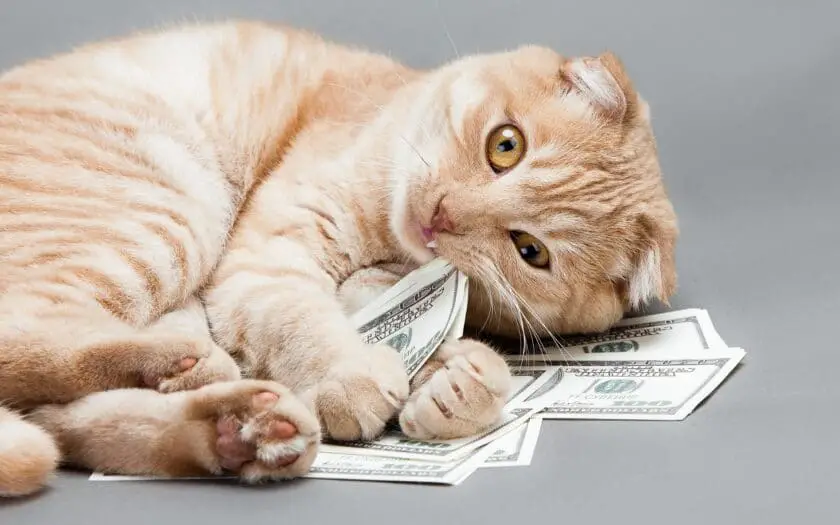
Are cats cheaper than dogs?
Over the course of their lifetimes, cats are generally more affordable than dogs. While buying a specific breed of cat can be expensive, generally, adoption fees are lower for kittens and cats than they are for puppies or dogs—particularly during kitten seasons or times when the shelter has a major influx of kittens.
When it comes to deciding between getting a cat or a dog as a pet, one of the factors that often comes into consideration is the cost. Many people believe that cats are cheaper than dogs, but is this really true? Let’s take a closer look at the expenses associated with owning both cats and dogs to determine which one is more budget-friendly.
Firstly, it’s important to consider the initial cost of acquiring a pet. Cats are generally less expensive to purchase or adopt compared to dogs. While the price can vary depending on the breed and where you get them from, cats are typically more affordable. Dogs, on the other hand, can be quite expensive, especially if you’re looking for a specific breed or a purebred dog.
Secondly, ongoing expenses such as food, grooming, and veterinary care should also be taken into account. Cats tend to eat less than dogs, which means their food expenses are generally lower. Cats are generally easier to groom compared to dogs, which can save you money on grooming services or products. However, cats still require regular veterinary check-ups and vaccinations, just like dogs, so the cost of healthcare is relatively similar for both pets.
It’s important to consider the cost of pet supplies. Cats require a litter box, litter, scratching posts, and toys, while dogs need a leash, collar, toys, and possibly a crate. The cost of these supplies can vary depending on the size and breed of the pet, but overall, the expenses for both cats and dogs are relatively similar.
While cats may have a lower initial cost and slightly lower ongoing expenses, the overall cost of owning a cat versus a dog is not significantly different. It’s important to consider factors beyond just the financial aspect when deciding between a cat and a dog, such as the time and effort required for their care and the compatibility with your lifestyle.
Are cats easy to own?
Cats are loving, devoted and charming pets. They are easy to care for and do not require a lot of room. They are “at their best” as a full-time indoor pet. Felines are an endless source of companionship, fun and entertainment for you and your family.
When it comes to owning a pet, many people consider cats to be a popular choice. They are known for their independent nature and low maintenance requirements. However, whether or not cats are easy to own is a subjective question that depends on various factors.
Firstly, cats are generally considered to be low maintenance pets. They are independent animals that do not require constant attention and can entertain themselves for long periods of time. Unlike dogs, cats do not need to be taken for walks or let outside to use the bathroom. They are litter trained and can use a litter box, which makes cleaning up after them relatively easy.
Secondly, cats are known for their ability to adapt to different living environments. They can thrive in small apartments or large houses, as long as they have access to basic necessities such as food, water, and a litter box. This makes them suitable for people who live in urban areas or have limited space.
However, owning a cat also comes with its own set of challenges. Cats can be finicky eaters and may require a specific diet or feeding schedule. They also need regular veterinary care, including vaccinations and check-ups, to ensure their health and well-being. Additionally, cats can be prone to certain health issues such as urinary tract infections or dental problems, which may require additional attention and care.
While cats are generally considered to be low maintenance pets, owning a cat still requires a certain level of responsibility and commitment. It is important to provide them with proper care, attention, and a suitable living environment to ensure their well-being. Ultimately, whether or not cats are easy to own depends on the individual’s lifestyle, preferences, and willingness to meet the needs of their feline companion.
How much a kitten cost?
When considering getting a new pet, one of the first questions that often comes to mind is how much it will cost. This is especially true when it comes to kittens, as they require a variety of supplies and veterinary care. The cost of a kitten can vary depending on several factors, including breed, age, and where you acquire the kitten from.
The breed of the kitten can have a significant impact on its price. Certain breeds, such as Maine Coons or Scottish Folds, are known for their unique characteristics and are therefore more expensive. On the other hand, mixed breed kittens or domestic shorthairs are generally more affordable. It’s important to research different breeds and their associated costs before making a decision.
The age of the kitten can also affect its price. Younger kittens, typically under 12 weeks old, tend to be more expensive as they require more care and attention. They may need additional vaccinations, deworming, and spaying or neutering. Older kittens, on the other hand, may already have some of these procedures done, which can lower their overall cost.
Where you acquire the kitten from can also impact its price. If you choose to adopt from a shelter or rescue organization, the cost is often lower and may include vaccinations and spaying/neutering. However, if you decide to purchase a kitten from a breeder, the price can be higher due to the breeder’s expenses and reputation.
The cost of a kitten can vary depending on factors such as breed, age, and where you acquire it from. It’s important to consider these factors and do your research before bringing a new furry friend into your home.
Will a single cat be happy?
Cats are naturally solitary animals and are often happy without the company of their own species. They are territorial animals who don’t like conflict with other cats. Introducing a new cat to an existing cat in the household takes time and patience – but don’t worry, we have advice for this!
Whether or not a single cat will be happy depends on various factors. Cats are known to be independent animals, but they also have social needs. Some cats may be perfectly content being the only pet in the household, while others may require the companionship of another cat or even a human.
It is important to consider the individual cat’s personality and temperament. Some cats are more introverted and prefer to have their own space, while others are more extroverted and thrive on social interaction. If a cat is naturally more solitary, they may be perfectly happy being the only pet in the household. On the other hand, if a cat is more social and craves companionship, they may become lonely and unhappy without another cat or human to interact with.
Another factor to consider is the amount of attention and stimulation the cat receives. Cats are intelligent animals that require mental and physical stimulation to stay happy and healthy. If a single cat is provided with plenty of toys, playtime, and interaction with their human, they may be perfectly content. However, if a cat is left alone for long periods of time without any form of stimulation, they may become bored and unhappy.
The living environment also plays a role in a cat’s happiness. Cats are territorial animals and having their own space is important to them. If a single cat has access to a comfortable and enriching environment, with plenty of hiding spots, scratching posts, and perches, they may be happy on their own. However, if a cat is confined to a small space or lacks environmental enrichment, they may become stressed and unhappy.
A single cat will be happy depends on their individual personality, the amount of attention and stimulation they receive, and the living environment they are in. It is important to consider these factors when deciding whether or not to have a single cat as a pet.
Should I get a cat or dog first?
In the most general terms, though, the best strategy would be to adopt first a middle-aged, well-mannered dog who shows little interest in cats, and then a kitten who has been raised in a household with friendly or indifferent dogs around.
Deciding whether to get a cat or a dog as a pet is a big decision that many people face. Both cats and dogs make wonderful companions, but there are several factors to consider when deciding which one to get first. It’s important to think about your lifestyle, living situation, and personal preferences before making a decision.
One factor to consider is your lifestyle. Cats are generally more independent and require less attention and exercise compared to dogs. If you have a busy schedule or travel frequently, a cat may be a better choice for you. Cats are also more suitable for apartment living as they don’t require as much space to roam and play. On the other hand, dogs are more social animals and require more attention, exercise, and mental stimulation. If you have a lot of free time and enjoy outdoor activities, a dog may be a better fit for your lifestyle.
Another factor to consider is your living situation. If you live in a small apartment with limited outdoor space, a cat may be a more practical choice. Cats are generally more adaptable to different living environments and can be kept indoors without feeling confined. Dogs, on the other hand, require regular exercise and outdoor access. If you have a large yard or live in a house with easy access to outdoor areas, a dog may be a better option.
Personal preferences also play a role in the decision-making process. Some people are naturally more inclined towards cats, while others prefer dogs. Cats are known for their independent and low-maintenance nature, while dogs are known for their loyalty and companionship. Consider your own preferences and what you value most in a pet. If you enjoy cuddling and constant companionship, a dog may be the right choice for you. If you prefer a more low-key and independent pet, a cat may be a better fit.
What are the initial costs associated with owning a cat?
When it comes to owning a cat, there are several initial costs that you should be prepared for. Firstly, you will need to purchase essential supplies such as a litter box, litter, food and water bowls, toys, and a scratching post. These items can vary in price depending on their quality and brand, but it’s important to invest in durable and safe products for your cat’s well-being.
In addition to supplies, you will also need to consider the cost of adopting or purchasing a cat. Adoption fees can range from $50 to $150, depending on the shelter or rescue organization. If you choose to buy a cat from a breeder, the cost can be significantly higher, often ranging from $500 to $2000 or more.
Lastly, it’s important to budget for initial veterinary expenses. Your new cat will need to be examined by a veterinarian, receive vaccinations, and be spayed or neutered if they haven’t already. These costs can vary depending on your location and the specific services required, but you should expect to spend a few hundred dollars on these initial veterinary procedures.
What are the recurring expenses of owning a cat?
When it comes to owning a cat, there are several recurring expenses that you should be prepared for. One of the most significant recurring expenses is food. Cats require a balanced diet to stay healthy, and high-quality cat food can be quite expensive. It’s important to choose a cat food that meets their nutritional needs and fits within your budget.
In addition to food, you’ll also need to budget for litter. Cats are naturally clean animals and require a litter box for their bathroom needs. Litter can be purchased in bulk, but it still adds up over time. You’ll also need to regularly clean and replace the litter to maintain a clean and odor-free environment for your cat.
Another recurring expense is veterinary care. Cats need regular check-ups, vaccinations, and preventative treatments for fleas and ticks. These costs can vary depending on your location and the specific needs of your cat. It’s important to budget for these expenses to ensure that your cat receives the necessary medical care to stay healthy.
Are there any unexpected costs that come with owning a cat?
Yes, there can be unexpected costs that come with owning a cat. While cats are generally low-maintenance pets, there are certain situations that may require additional expenses. One of the most common unexpected costs is veterinary emergencies. Cats can get injured or develop sudden illnesses that require immediate medical attention. This can include accidents, infections, or even chronic conditions that may require ongoing treatment. These unexpected veterinary costs can range from a few hundred to several thousand dollars, depending on the severity of the condition and the required treatment.
Another unexpected cost that cat owners may encounter is damage to furniture or belongings. Cats have a natural instinct to scratch, and if they don’t have appropriate scratching posts or toys, they may resort to scratching furniture or other household items. Repairing or replacing damaged furniture can be an unexpected expense that cat owners need to consider.
Additionally, some cats may develop behavioral issues that require professional help or training. This can include aggression, anxiety, or litter box problems. Hiring a cat behaviorist or enrolling in training classes can be an added expense for cat owners. Cats will require these additional expenses, but it’s always good to be prepared for any unexpected costs that may arise when owning a cat.
How much should I budget for veterinary care for a cat?
When it comes to budgeting for veterinary care for your cat, it is important to consider both the routine and unexpected expenses. On average, you can expect to spend around $200 to $400 per year for routine veterinary care, which includes vaccinations, annual check-ups, and preventive medications. However, this cost can vary depending on your location and the specific services provided by your veterinarian.
In addition to routine care, it is crucial to budget for unexpected veterinary expenses. Cats can experience accidents or develop health issues that require immediate medical attention. These unexpected costs can range from a few hundred dollars to several thousand dollars, depending on the severity of the condition and the necessary treatments. It is recommended to set aside an emergency fund specifically for your cat’s veterinary care to ensure that you can provide the necessary treatment without financial strain.
Are there any additional expenses to consider when owning a cat, such as grooming or training?
Yes, there are additional expenses to consider when owning a cat, apart from the initial costs and recurring expenses. Grooming is one such expense that cat owners should be aware of. While cats are generally known for their self-grooming habits, regular grooming sessions can help maintain their coat’s health and prevent matting. Grooming tools such as brushes, combs, and nail clippers may need to be purchased, and some cat owners may also choose to take their cats to professional groomers for services like baths and haircuts. These grooming expenses can vary depending on the type of cat and its grooming needs.
Training is another aspect that may require additional expenses. While cats are independent animals, they can still benefit from basic training to ensure good behavior and obedience. Training tools such as scratching posts, litter boxes, and toys may need to be purchased to facilitate the training process. Additionally, some cat owners may opt for professional training classes or hire a cat behaviorist to address specific behavioral issues. These training expenses can vary depending on the individual cat’s needs and the training methods employed.
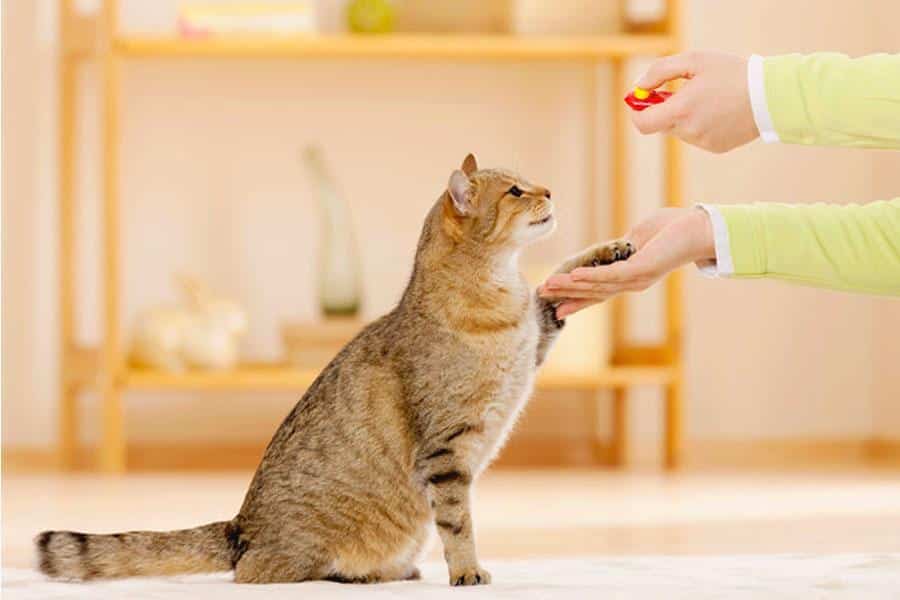
Conclusion
The cost of owning a cat can vary depending on various factors. The initial cost of adopting or purchasing a cat can range from a few dollars to several hundred dollars. This includes the cost of the cat itself, as well as any necessary vaccinations, spaying or neutering, and microchipping. There may be additional costs such as a carrier, litter box, and scratching post. The potential costs before bringing a cat into your home.
Once you have brought your cost cat home, there are ongoing expenses to consider. These include food, litter, and regular veterinary check-ups. The cost of food can vary depending on the brand and quality you choose, as well as the size and age of your cat. Litter costs can also vary, depending on the type of litter you prefer and how often you need to replace it. Regular veterinary check-ups are important for your cat’s health and can help catch any potential issues early on, but they do come with a cost.
Cats can get sick or injured, and veterinary care can be expensive. It’s a good idea to have an emergency fund set aside to cover any unexpected medical costs that may arise. If you plan to travel or go on vacation, you may need to budget for boarding or pet-sitting services. Overall, owning a cat can be a rewarding experience, but it does come with financial responsibilities. By budgeting and planning ahead, you can ensure that you are able to provide the best care for your feline friend without breaking the bank.

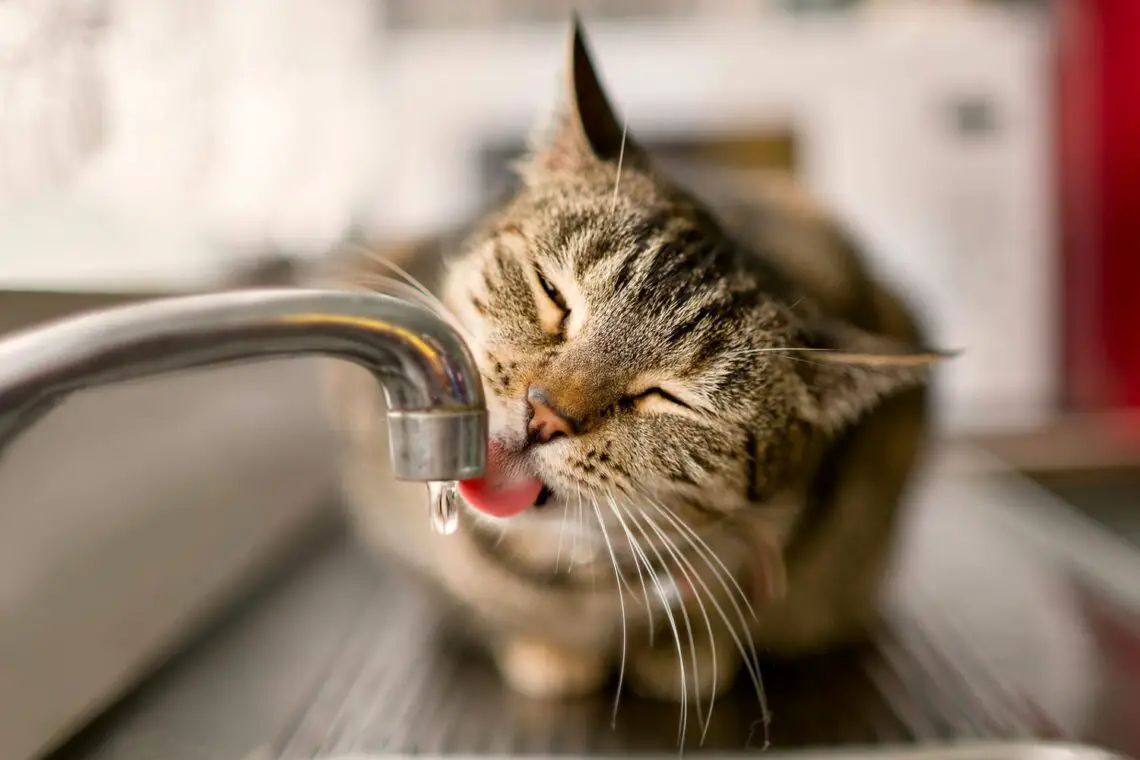
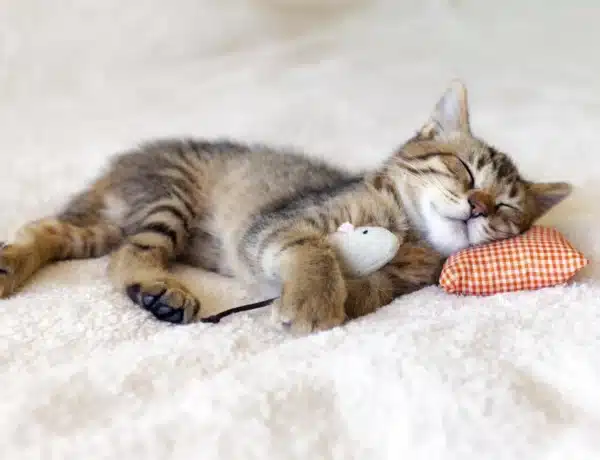
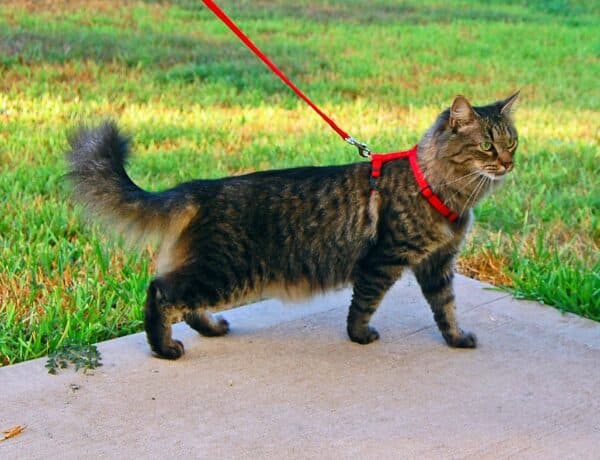

No Comments